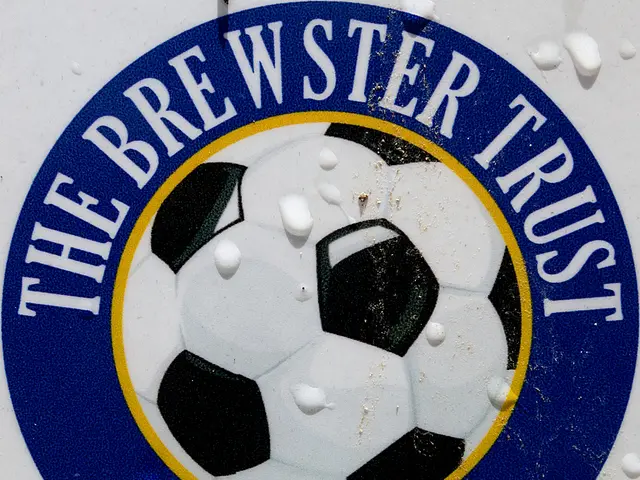Nevada authorities deny petition by suspected blackjack skill-user
In August 2024, a blackjack player named Rahne Pistor participated in a promotional campaign at the M Resort in Henderson, Nevada. The promotional campaign offered a $15,000 suited-blackjack payday and eligible players could earn bonus payouts of 3-1 during a blackjack game.
Pistor's play was considered inconsistent and non-standard by the table games supervisor, with examples being his failure to take insurance on certain bets and doubling down on others. The investigation revealed that Pistor was counting cards, not just flat betting.
M Resort's surveillance team and compliance director investigated Pistor due to concerns about potential advantage play. After redeeming his vouchers, a floor supervisor informed Pistor that he could no longer play blackjack and he left the table.
Pistor claimed that by Nevada contract law, prior Board precedent, and standards of ethics and fairness in gaming, the bonus tickets should have been allowed to be redeemed for their value. However, the director of marketing at the M Resort stated that Pistor hadn't earned anything beyond the three redeemed vouchers.
Pistor estimated that each bonus voucher was worth $150, as he had been wagering the maximum bet of $100. Despite this, the M Resort's vice president of finance stated that there was no value in the promotional vouchers and Pistor didn't make any wagers associated with the remaining seven vouchers.
Pistor accused M Resort of "bait and switch" and using libelous hearsay to justify withholding his bonus vouchers. However, the Nevada Gaming Control Board rejected Pistor's appeal.
At a subsequent hearing in March, Pistor argued that the M Resort had stolen something of value from him by not allowing him to redeem his bonus vouchers. Pistor argued that the M Resort had entered into a contract with him by allowing him to play and earn the bonus tickets.
Nevada gaming law treats disputes between casinos and advantage players regarding promotional vouchers and contractual obligations primarily as matters governed by the Nevada Gaming Control Act and overseen by the Nevada Gaming Control Board and relevant courts. The law emphasises state regulatory authority over gaming activities, including enforcement of contractual obligations and promotions, to protect both the integrity of gaming and the interests of licensed casinos.
Key points about how Nevada handles such disputes:
- Regulatory Oversight: The Nevada Gaming Control Board and Nevada Gaming Commission have authority to investigate disputes involving casinos and players, including issues around promotional vouchers, to ensure compliance with gaming laws and regulations. Casinos must adhere to published rules for promotional offerings, and disputes often require the casinos to justify their actions under the law and their house rules.
- Contractual Nature of Promotions: Promotional vouchers and incentives are typically treated as contracts between the casino and the player. Nevada courts and regulators interpret these contracts under standard contract law principles, meaning that the terms and conditions of such promotions must be clear, disclosed, and honoured unless there is a valid reason not to (e.g., fraud or violation of gaming rules).
- Advantage Play Disputes: Advantage players—who use legal methods to maximise casino promotions or games—may come into conflict with casinos over promotional eligibility or payouts. In such cases, the resolution depends on the contractual terms and whether the player's conduct violated casino policies or state gaming requirements.
- Legal Precedents: Nevada courts strongly support the state's police powers to regulate gambling, including contractual disputes, to maintain the integrity of gaming. Courts typically uphold regulations favouring fair dealing and transparency in promotions.
- Discovery and Enforcement: When disputes escalate to litigation, Nevada courts may order discovery to bring transparency to contractual terms and casino actions, similar to ongoing cases where Nevada demands internal documents to confirm license compliance (as seen in disputes involving other gaming operations, e.g., Kalshi[1][3]).
- Remedies: Remedies for breaches may include enforcement of promotional payouts, injunctive relief, or other court-ordered actions consistent with gaming law and contract principles.
In summary, Nevada’s gaming law handles disputes over promotional vouchers and contractual obligations through its regulatory bodies and judiciary, which enforce clear contractual terms, uphold player rights when promotions are legally earned, and ensure casinos comply with their promotional commitments within the framework of state gaming regulations. Disputes are resolved by applying contract law principles under the supervision of regulators dedicated to preserving casino operations' integrity and fairness.
[1] Kalshi Case [3] Nevada Gaming Control Board
- The Nevada Gaming Control Act, overseen by the Nevada Gaming Control Board, emphasizes that disputes surrounding promotional vouchers and contractual obligations between casinos and players, such as Rahne Pistor's case, are primarily matters governed by Nevada state regulations, enforcing both the integrity of gaming and the interests of licensed casinos.
- Rahne Pistor's disagreement with M Resort over the redemption of his promotional vouchers, stemming from his alleged advantage play in blackjack, is a clear example of Nevada's approach, where regulatory bodies like the Nevada Gaming Control Board apply contract law principles, ensuring casinos honor their promotional commitments within the framework of state gaming regulations. This approach not only protects players' rights but also upholds the integrity of gaming culture, as seen in Las Vegas and other casino-and-gambling locations.





